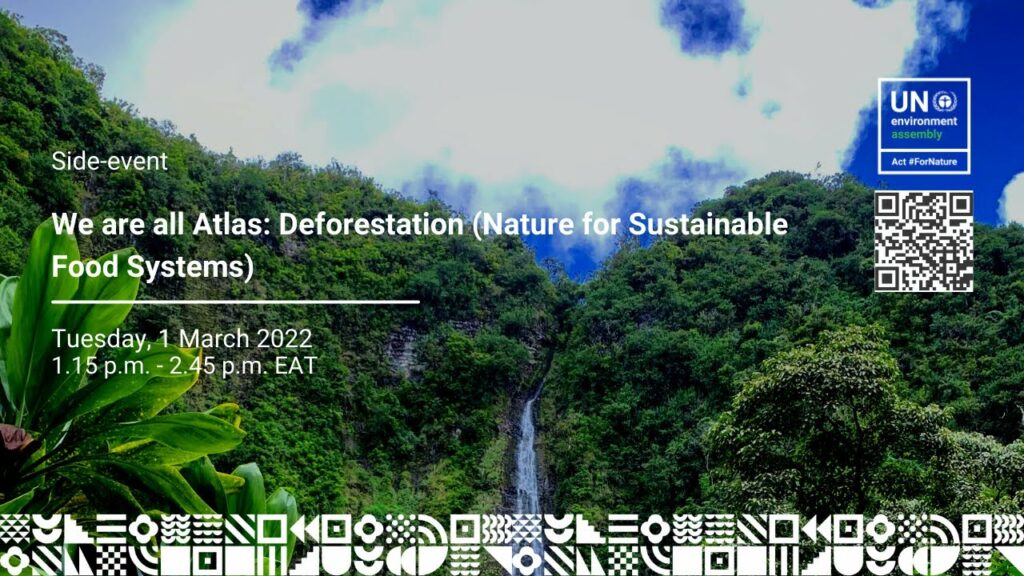This past 1 March, Denmark – as the current chair of the Amsterdam Declarations Partnership (ADP) – hosted a flagship side event at the Fifth Session of the United Nations Environment Assembly – or UNEA 5 – titled “We are all Atlas: sharing best practices for collaboration on sustainable deforestation-free, agricultural commodity production and consumption.”
Though the event was mostly digital, with speakers connecting from all over the world online, Lea Wermelin, Denmark’s Minister of Environment, and Bérangère Abba, France’s Secretary of State, were both present at the UN headquarters in Africa in Nairobi, Kenya, where UNEA 5 took place from 28 February to 2 March 2022.
We are all Atlas aimed to share lessons and discuss challenges regarding collaboration between governments, the private sector, civil society and indigenous people organisations as well as build momentum for inclusive action on sustainable development.
The topic of agroecology has also been discussed. As one of the speakers, Emile Frison, Interim Coordinator at the Coalition for Food System’s Transformation through Agroecology (Agroecology Coalition) and an expert on agricultural biodiversity at IPES-Food, explained why a holistic – or system’s – approach is necessary to tackle the current challenges we face, by saying that:
Fighting deforestation in major commodity chains is an important step forward, but it is insufficient to resolve multiple crises we face. A deep transformation of our food and agricultural systems is needed to comprehensively tackle deforestation and a range of interrelated challenges. This transformation should be based on the 13 principles of agroecology, allowing us to reach the Sustainable Development Goals in a holistic manner and address economic, environmental, climate, nutrition and social objectives at the same time.”
The Agroecology Coalition’s vision entails an inclusive food system based on the principles of agroecology. The Coalition has emerged from the UN Food Systems Summit in September of last year, and already has over 30 countries and 40+ organizations, civil society and research institutions, committed to making agroecological transitions a widespread reality.
You can watch We are all Atlas in the video below. You can also read the full speech of Emile Frison in the below attachment.

